
The work of Salesian missionaries in Colombia is internationally recognized. Just more than 34 percent of Colombians are living below the poverty line. Though Colombia is among one of the world’s emerging economies, more than three out of 10 Colombians still live in poor conditions. Colombia is also the world’s seventh most inequitable country.
According to the United Nations Refugee Agency (UNHCR), Colombia has 7.4 million citizens displaced because of ongoing violence in the country. The displacement is mainly caused by ongoing clashes between the military, leftist guerrilla groups and right-wing paramilitary successor groups.
One in five children in the country has no access to education, and many orphaned youth live in poverty and have lost their parents to natural disasters, the HIV/AIDS epidemic and other diseases, war or domestic issues. Some children remain living with a single parent, struggling to survive and are often pulled out of school to earn income for the remaining family. Other youth live in shelters or on the streets.
By providing education, workforce development services and social programs across Colombia, Salesian Missions helps poor youth have hope for a better life.
Neglect, discrimination and malnutrition affect orphans more often than their non-orphaned peers. Research shows that these youth are more likely to live in conditions of poverty, and be forced into child labor, recruited as child soldiers and subjected to exploitation and violence. Orphaned youth are also less likely to be enrolled in school. Don Bosco City in Medellin, one of the oldest and largest programs for street children in Latin America, offers shelter, meets basic needs and provides education to homeless youth. Since its inception in 1965, the program has rescued more than 83,000 boys and girls.
Through the program, Salesian missionaries offer a multi-pronged approach designed to address the broad social issues that contribute to the poverty and exploitation these youth face while training them in the skills necessary to break the cycle of violence and poverty. Graduates have earned degrees in graphic arts, industrial and residential electricity, machine operation for industrial production, automotive mechanics, industrial mechanics, furniture manufacturing and agriculture.
Over the past 10 years, Don Bosco City has developed key partnerships with more than 350 local companies across various employment sectors that have hired the program’s graduates as trainees and apprentices. Many graduates are then offered full-time work at the same company when their training is completed while others have been hired to work in administration at Don Bosco City and other Salesian programs.
Don Bosco City is just one of many Salesian-run programs serving abandoned youth throughout Colombia. In Bogota, the Children of the Street Program serves approximately 9,000 girls and boys each year and in Santiago de Cali, a special vocational training and youth center helps rehabilitate and educate former child soldiers.
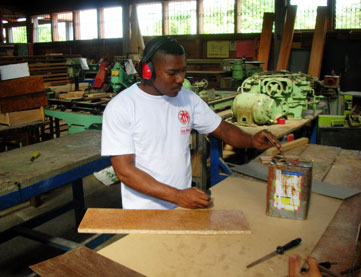
In Condoto, Salesian Missions built the first and only schools in the area and is improving the lives of the students and all members of the communities — for generations to come. Condoto is a remote village nestled in the middle of a tropical rainforest in western Colombia. Most of the 30,000 inhabitants are descendants of Africans who escaped the slave trade. Mining is the main source of income — with low pay and harsh working conditions.
The Don Bosco Center in Ciudad Bolivar, one of the most dangerous areas in Bogota, provides educational opportunities and employment for young people affected by the armed conflict and other situations of vulnerability through a program with Pacto Motor.
During the 2014-2015 school year, more than 900 students were engaged in professional training courses. The program was developed in response to the need for skilled labor for the automobile and transport industries while noting that youth from Ciudad Bolivar were often rejected in the employment selection process. After the first class graduated in 2013, more than 150 youth, or 98 percent of Pacto Motor’s first graduating class, found employment after successfully completing the program.
As a result of the Pacto Motor program’s success, the Colombian Ministry of Labor is using the Salesian training model to develop additional pilot projects focused on employment industries in other cities in Colombia.
In another training program, the Don Bosco Training Center in Armenia opened to provide education and workforce development services to poor youth in the area. The region has more than half its population under 25 years of age. Unemployment, especially for youth, is commonplace because of a lack of industry in the region. The center includes classrooms, a library, a sports field and administrative space for staff. Technical courses are currently being offered in the areas of tourism, culinary arts, accounting, information technology, cosmetology, mechanics and welding.
Don Bosco City is one of the oldest and largest programs for street children in Latin America. Since its start in 1965, the program has rescued more than 83,000 boys and girls. Today, much of its work focuses on the effects on youth after decades of armed conflict in the country, which left behind some 8 million victims. Thousands of children have been part of these armed groups, forced to fight and kill at a very young age.
It is estimated that close to 6,000 minors are still utilized as child soldiers with thousands more having reached their 18th birthday after years of combat. The long rehabilitation process focuses on three things youth need to learn — how to trust, to have hope for the future and to build relationships with others. Psychologists and teachers work together with youth, giving them the tools for a better future, including providing basic education and more advanced skills training that will lead to stable employment.
Through the program, Salesian missionaries offer a multi-pronged approach designed to address the broad social issues that contribute to the poverty and exploitation these youth face while training them in the skills necessary to break the cycle of violence and poverty. Currently, there are 900 youth between the ages of 8 and 12 living and receiving education at the program.
In recent years, more than 450,000 people fled the violence of Colombia to neighboring Ecuador, Venezuela, Panama and Costa Rica. Salesian Missions’ New Beginnings initiative, started in 2011, has provided more than 1,000 Colombian refugees in these four countries vocational and human development training as well as job placement services.
Without the prospect of a job, it was hard for Colombian refugees to create stability for their families and build new lives. The New Beginnings program granted each refugee 260 hours of technical training as well as 40 hours of human development workshops. The training programs, coupled with the job placement services, allowed victims of violence and chaos to start over and build a stable, hopeful future for themselves, their families and their new communities.
The New Beginnings program was designed to meet the goals of the UNHCR/International Organization for Migration/Ministers Foreign Affairs; Colombia, Ecuador Assistance Plan for Colombian Refugees (December 2010), which seeks to support priorities and pilot programs which will advance the sustainable reintegration of Colombians who decide to return home while improving the living conditions of those Colombians who continue to stay abroad.
Don Bosco City offers children a place to live, study and learn a useful trade to help them integrate successfully into society. An important part is the sporting program, which provides soccer, basketball, volleyball and chess. These opportunities allow youth to play on a team and make friends—as well as gain a sense of accomplishment.
Don Bosco City’s protection program, “Making Impressions,” was established to help children understand their rights and to restore rights for those involved in child labor in the Amaga municipality. This program was created in response to social issues that have arisen from the area’s coal-based economy. Many families in the region make their living in the coal mining industry and children are often sent to work in the industry rather than attend school.
It’s not just young men and boys who are sent to work. Many young girls are also faced with labor exploitation and other abuses. Forced to work, they miss out on important opportunities for education leading them to become dependent on others while lacking the ability to take care of themselves. This puts them more at risk of abuse.
Youth in the program are able to access child rights education and use the library which serves as a quiet space for learning and studying. Participants can also take advantage of recreational spaces which help to make free time more productive and aid in building better relationships with peers.
The Youth Services Organization, located in the headquarters of Bosconia, in the Los Martires area of Bogota, was able to provide food for more than 60 children and older youth each day during March and April 2022, thanks to donor funding from Salesian Missions. The project is known as the Casa Bosconia Project.
To help carry out the nutrition project, Salesians established an agreement with Bogota’s Archdiocese Food Bank to guarantee availability of the required food products. In addition, the Casa Bosconia Project’s health and nutrition team provides an analysis of the current nutritional status of the youth to establish actions that will improve their nutritional well-being. A volunteer nutrition specialist also sets calorie and macronutrient goals for each of the age groups.
From Colombia

From Colombia

Salesians work with former child soldiers to overcome trauma, reintegrate into society. NEW ROCHELLE, NY (Feb. 12, 2025) Salesian Missions, the U.S. development arm of the Salesians of Don Bosco, joins humanitarian organizations a
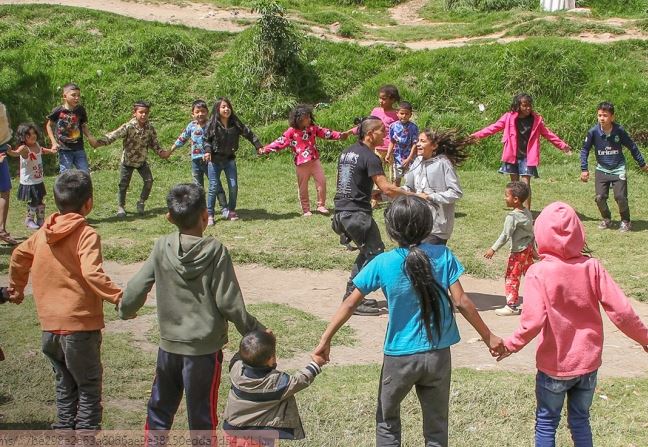
Salesians also develop programs to give youth opportunities in home countries. NEW ROCHELLE, NY (Dec. 18, 2024) Salesian Missions, the U.S. development arm of the Salesians of Don Bosco, joins humanitarian organizations and the in
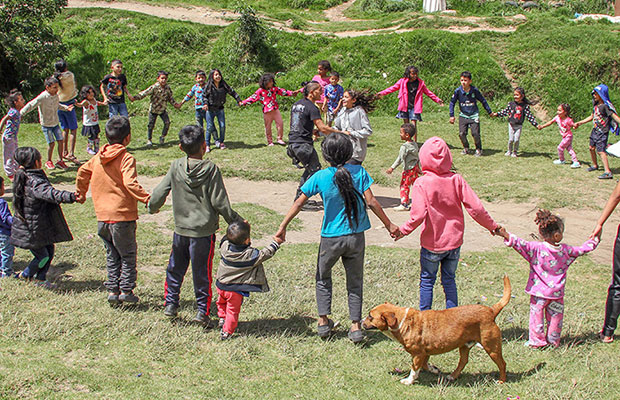
Living his life’s vocation on the streets of Turin, Italy, John Bosco never refused to help a poor child in need. To him, every marginalized and exploited young person deserved equal opportunities for education and employment. O
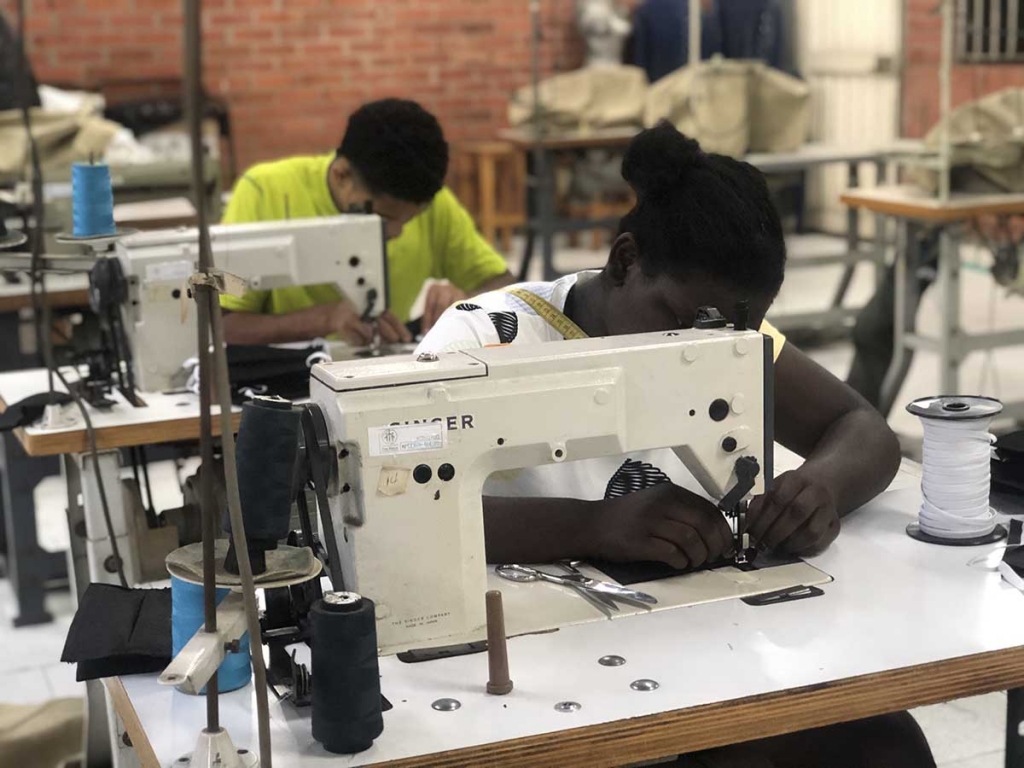
Salesians offer shelter, counseling and education to youth. NEW ROCHELLE, NY (Feb. 12, 2024) Salesian Missions, the U.S. development arm of the Salesians of Don Bosco, joins humanitarian organizations and the international communi
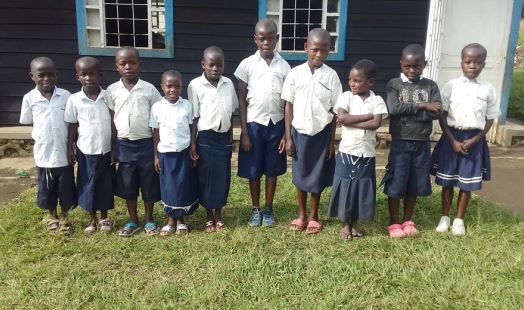
Salesian programs ensure youth have their basic needs met and are enrolled in school. NEW ROCHELLE, NY (June 12, 2023) Salesian Missions, the U.S. development arm of the Salesians of Don Bosco, joins humanitarian organizations and
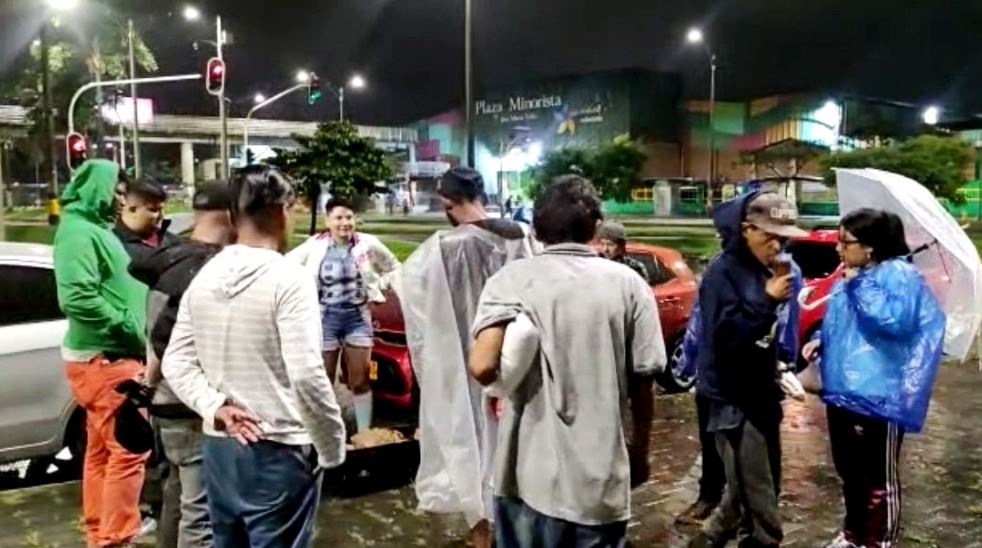
Day established by UN to raise awareness of issues affecting youth forced to live on streets. NEW ROCHELLE, NY (April 12, 2023) Salesian Missions, the U.S. development arm of the Salesians of Don Bosco, joins humanitarian and inte

UN report shows devastating impact various forms of conflict have on children. NEW ROCHELLE, NY (Feb. 12, 2023) Salesian Missions, the U.S. development arm of the Salesians of Don Bosco, joins humanitarian organizations and the in
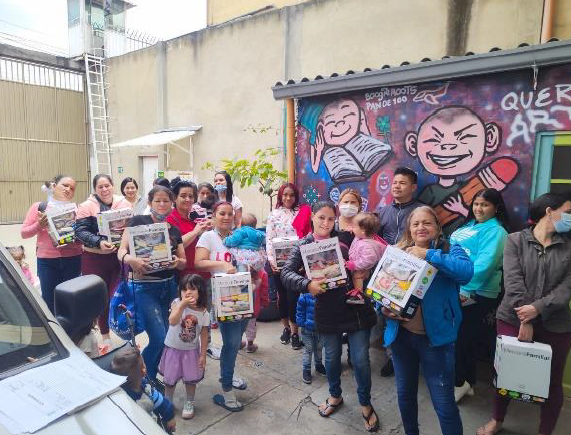
The children and older youth live in extreme poverty with their families or are homeless. NEW ROCHELLE, NY (June 13, 2022) Top of FormThe Youth Services Organization, located in the headquarters of Bosconia, in the Los Martires ar
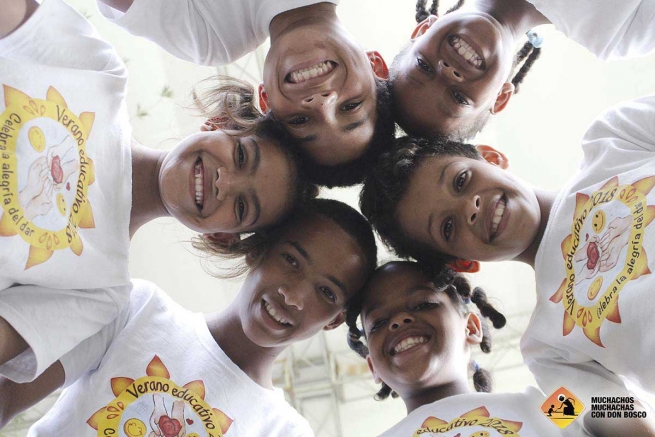
Salesian missionaries in more than 130 countries work to ensure that youth receive support in the aftermath of trauma and abuse. NEW ROCHELLE, NY (June 4, 2022) Top of Form Salesian Missions, the U.S. development arm of the Salesi
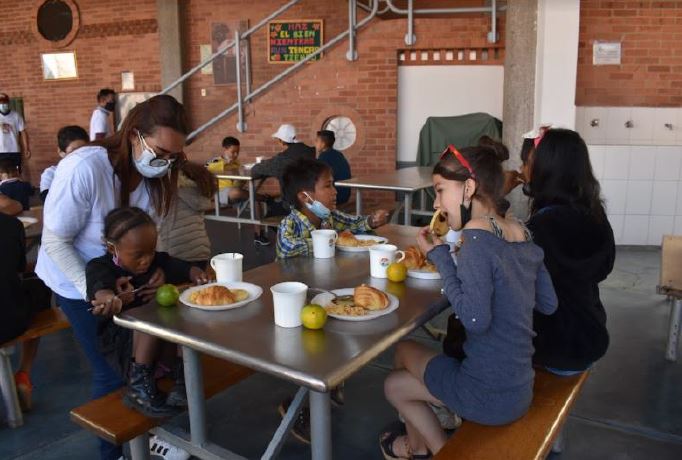
Celebrated each year on April 12, the day raises awareness of issues affecting youth forced to live on the streets. NEW ROCHELLE, NY (April 12, 2022) Salesian Missions, the U.S. development arm of the Salesians of Don Bosco, joins
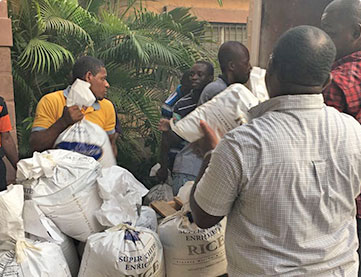
Salesian Missions includes agriculture in its vocational training programs – to ensure that youth of Rwanda learn better agricultural practices as well as keep the school self-sustaining in the face of the country’s food shortages.
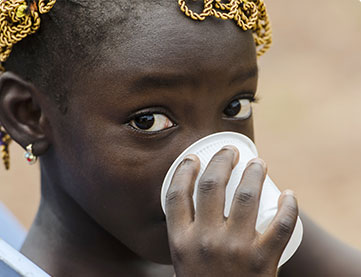
Salesian Missions includes agriculture in its vocational training programs – to ensure that youth of Rwanda learn better agricultural practices as well as keep the school self-sustaining in the face of the country’s food shortages.
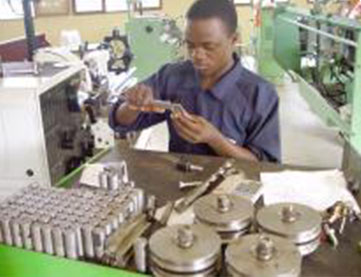
Salesian Missions includes agriculture in its vocational training programs – to ensure that youth of Rwanda learn better agricultural practices as well as keep the school self-sustaining in the face of the country’s food shortages.